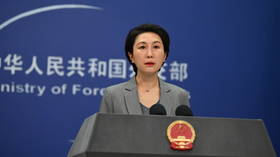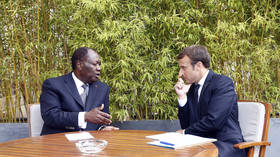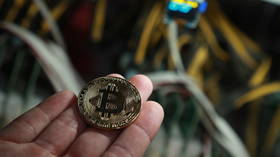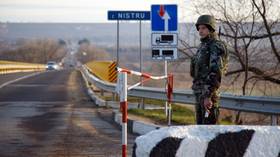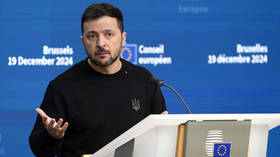Most US vets think Middle East regime change wars weren’t worth fighting, survey finds
US veterans are just as war-weary as the general public, according to a recent poll which found nearly two-thirds believe the war in Iraq “was not worth fighting” and more than half think the same about Afghanistan and Syria.
“Veterans who served in either Iraq or Afghanistan are no more supportive of those engagements than those who did not serve in these wars,” Pew Research Center’s report, published Wednesday, observed, confirming a trend of war fatigue that other pollsters have noted.
Also on rt.com Land of the free? Pentagon gives soldiers pre-approved lines to parrot at 4th of July eventVets were slightly more likely than their civilian peers to think the Iraq War had been a bust, considering the costs versus the benefits to the US, with 64 percent declaring it had not been worthwhile. While the Iraq war ended in 2011, it was reanimated, zombie-like, not long after as troops were redeployed to fight the Islamic State (IS, formerly ISIS/ISIL).
Afghanistan got marginally more favorable reviews, though 58 percent of vets still believed the longest war in US history had been pointless. Their responses mirrored those of civilians surveyed by Pew. President Donald Trump recently clamped down on the amount of data released by the Pentagon regarding the conflict as the Taliban has gradually retaken over half the country’s territory.
Also on rt.com Trump says he’ll leave ‘very strong intelligence’ in Afghanistan, invokes Bush rationale for warThe mounting disdain for regime-change wars extended to Syria, where the US intervened in 2014 and still remains despite the promises of President Donald Trump to pull out. Fifty-five percent of vets said the Syrian campaign wasn’t worth it, and 58 percent of their civilian counterparts agreed. While the US never officially declared war on Syria, it sent upwards of 2,000 soldiers there and built a network of outposts that only became widespread knowledge when Trump announced the ill-fated pullout.
While the surveyed vets’ opinions remained mostly constant no matter when and how long they’d served, the divide between political parties was sharp, with fully three times as many Republican vets (45 percent) as Democrats believing the Iraq war was a worthwhile endeavor. Only twice as many Republicans (46 percent) supported the war in Afghanistan as Democrats, and a little over twice as many Republicans (54 percent) believed the Syrian campaign had been worth it.
A plurality of vets of both parties, however, approved of Trump’s performance as commander in chief, though slightly less than half believed his policies had made the military stronger – a more positive view of the president than that held by the general public.
Also on rt.com ‘Americans are war-weary, while Iran was never a threat to us’ – Virginia State senator to RTWith the total cost for the “war on terror” approaching $6 trillion, nearly two decades of constant war has taken its toll on the American military. By the end of 2019, soldiers will be enlisting who were not even born when the war in Afghanistan began. Already, earlier this year, a “heartwarming” story about a father and daughter reunited while deployed to Iraq at the same time epitomized the futility of endless war. As for “terror,” it appears to be winning: a report last year found that the number of Islamist militants operating worldwide had quadrupled since September 11, 2001.
If you like this story, share it with a friend!




